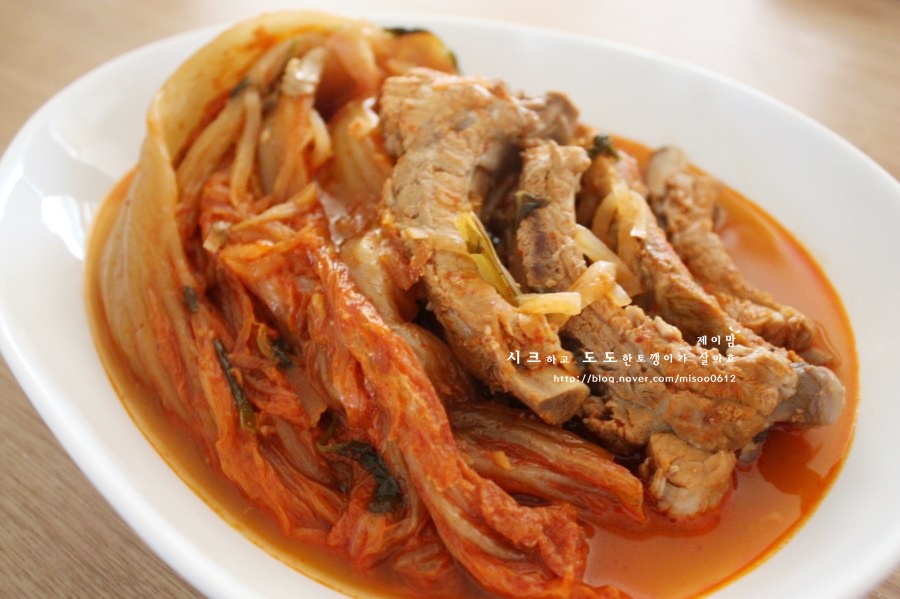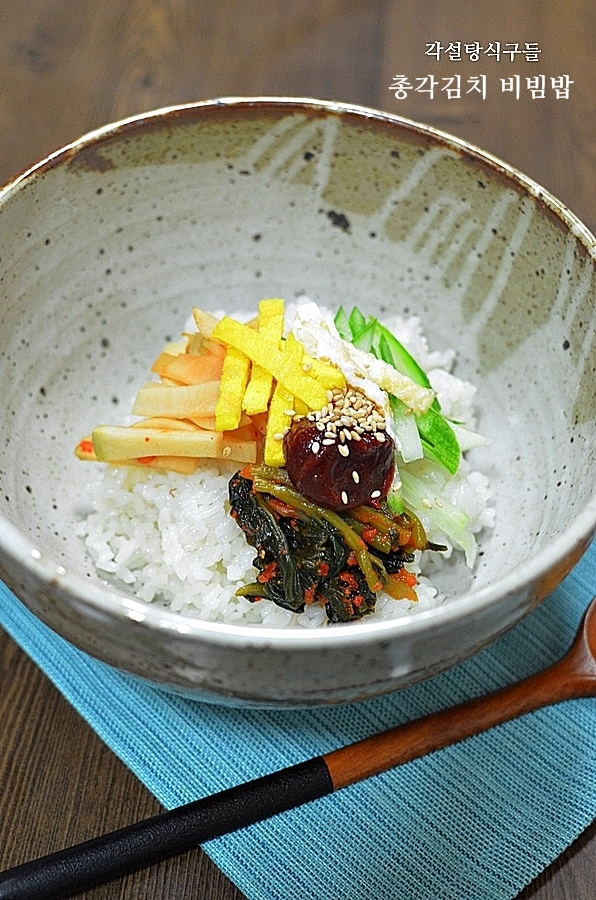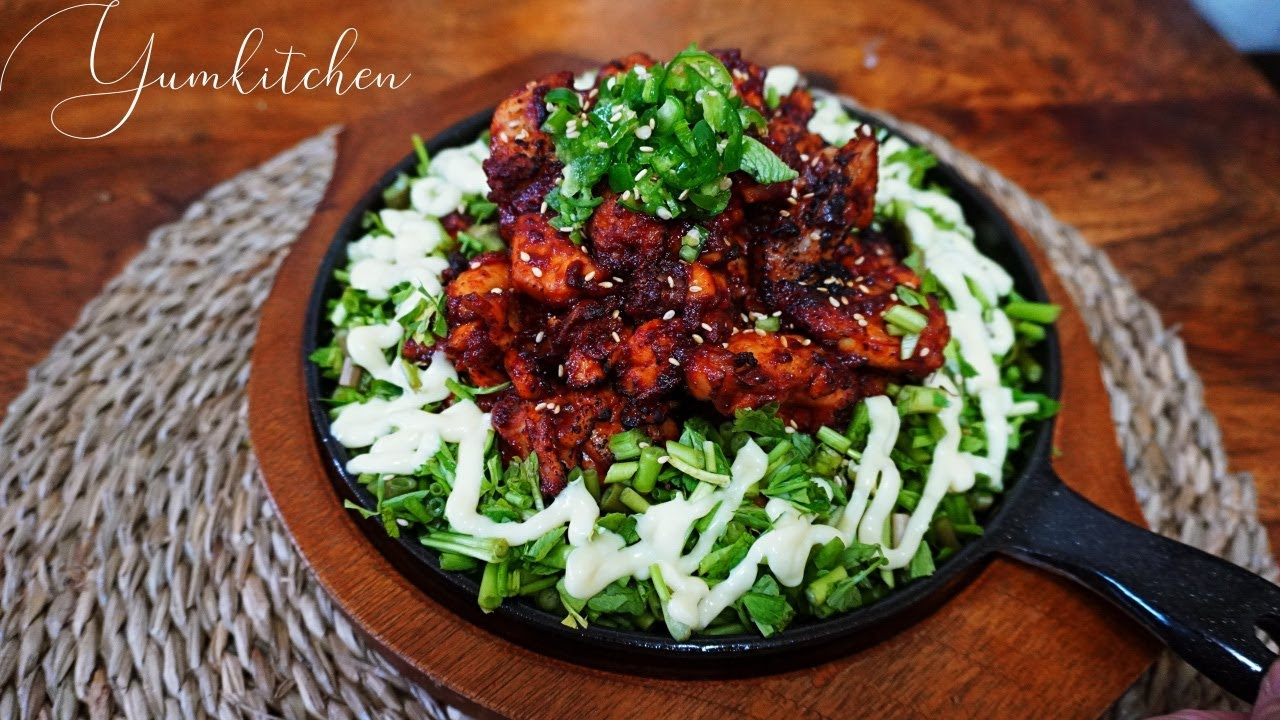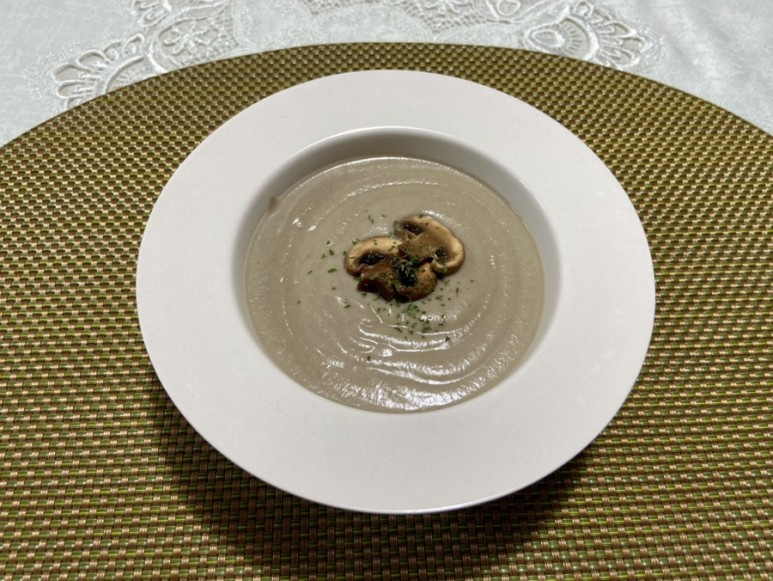Pork Rib Kimchi Stew: The Perfect Harmony of Tangy Kimchi and Tender Ribs, Guaranteed to Make You Eat Two Bowls of Rice!
Pork Rib Kimchi Stew – A Deep and Rich Flavor That Promises to Be a Rice Thief, Revealing the Secret to Easy Cooking for Everyone!

When you simmer well-fermented, tangy kimchi with generous pork ribs, a fantastic rice thief that whets your appetite is born! Try adding the kimchi whole and letting it simmer until tender, then enjoy tearing and eating it just before serving! Experience the magic of how the same kimchi can taste different depending on the cooking method. Let’s start making an easy and delicious pork rib kimchi stew recipe.
Main Ingredients- 1/4 head of aged napa cabbage kimchi
- 10 pork ribs
- 2 ladles of kimchi brine
- 2 cups of anchovy broth
For Boiling Ribs (To Remove Odor)- 1 Tbsp soybean paste
- 2 Tbsp rice wine (cheongju)
- A pinch of whole peppercorns
Rib Marinade- 2 Tbsp rice wine (cheongju)
- A pinch of black pepper
Seasoning (To Reduce Kimchi Acidity)- 1 Tbsp sugar
- 1 Tbsp soybean paste
- 2 Tbsp rice wine (cheongju)
- A pinch of whole peppercorns
Rib Marinade- 2 Tbsp rice wine (cheongju)
- A pinch of black pepper
Seasoning (To Reduce Kimchi Acidity)- 1 Tbsp sugar
- 1 Tbsp sugar
Cooking Instructions
Step 1
Rinse the pork ribs 2-3 times under cold running water to remove any blood. Place them in a bowl and let them soak for about 1 hour to drain the blood. This will make the meat more tender and reduce any gamey flavor.

Step 2
After draining the blood, parboil the pork ribs to remove any remaining odors. Place the ribs in a pot, cover with plenty of water, and add 1 Tbsp soybean paste, 2 Tbsp rice wine (cheongju), and a pinch of whole peppercorns. Bring to a boil over high heat, then reduce to medium heat and simmer for about 10 minutes.

Step 3
Rinse the parboiled ribs thoroughly under cold water. It’s important to wash away any blood or impurities stuck between the bones for a clean taste.

Step 4
Place the cleaned pork ribs in a pot. Add 2 Tbsp rice wine (cheongju) and a pinch of black pepper for seasoning, to further enhance flavor and reduce any lingering gamey notes. Mix well to coat the ribs.

Step 5
Arrange the prepared aged kimchi (either whole or cut into manageable pieces) on top of the seasoned ribs. Sprinkle 1 Tbsp of sugar evenly over the kimchi. The sugar helps to balance the sourness of the aged kimchi.

Step 6
To ensure a clear broth, strain 2 ladles of kimchi brine through a sieve. This step removes any excess solids from the brine, resulting in a cleaner, brighter flavor.

Step 7
Pour in 2 cups of anchovy broth. You can substitute this with kelp broth or rice water if preferred. Using broth instead of plain water will significantly deepen the umami flavor.

Step 8
Once all ingredients are in the pot, cover with a lid and bring to a rolling boil over high heat. Once the kimchi starts to soften and the broth is boiling vigorously, proceed to the next step.

Step 9
After the stew begins to boil, reduce the heat to very low. Cover the pot and let it simmer gently. Low and slow cooking is key to tenderizing the pork ribs and allowing the kimchi to fully soften and absorb the delicious flavors of the broth.

Step 10
It’s best to simmer it on low heat for at least 1 hour, or even longer. I cooked mine on a low setting (level 2 on my electric stove) for about 1 hour and 30 minutes. The stew is ready when a chopstick can be easily inserted into the pork ribs.

Step 11
Your delicious and rich Pork Rib Kimchi Stew is complete! Serve it piping hot over steamed rice for a truly satisfying meal. Tearing the tender kimchi and enjoying it with the pork ribs creates an exquisite taste.




